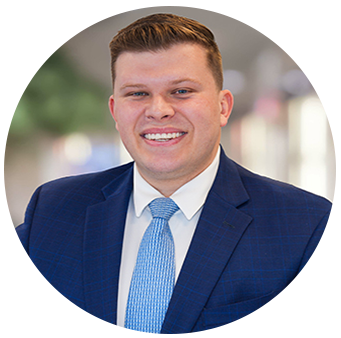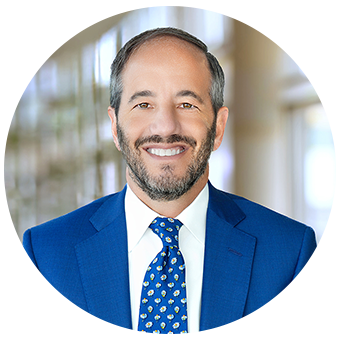Have a question?
Find quick answers to our most common questions.
If you have any questions, please email us at [email protected] or call us at 1-833-822-7435, or text us at 1-305-407-0276.
The entire account creation and investment process is completed online. You will be prompted to provide or verify any required information, as well as make the necessary acknowledgments electronically.
An accredited investor, in the context of a natural person, includes anyone who:
- Has earned income that exceeded $200,000 (or $300,000 together with a spouse) in each of the prior two years, and reasonably expects the same for the current calendar year, OR
- Has a net worth over $1 million, either alone or together with a spouse or spousal equivalent (excluding the value of the person’s primary residence), OR
- Holds good standing a Series 7, 65 or 82 license
On the income test, the person must satisfy the thresholds for the prior two years consistently either alone or with a spouse, and cannot, for example, satisfy one year based on individual income and the next two years based on joint income with a spouse. The only exception is if a person is married within this period. The person may satisfy the threshold based on joint income for the years during which the person was married and based on individual income for the other years.
In addition, entities such as banks, partnerships, corporations, nonprofits and trusts may be accredited investors. Of the entities that would be considered accredited investors and depending on your circumstances, the following may be relevant to you:
- Any trust with total assets more than $5 million, not formed to specifically purchase the subject securities, and whose purchase is directed by a sophisticated person, OR
- Certain entity with total investments more than $5 million, not formed to specifically purchase the subject securities, OR
- Any entity in which all the equity owners are accredited investors.
In this context, a sophisticated person means the person must have, or the company or private fund offering the securities reasonably believes that this person has, sufficient knowledge and experience in financial and business matters to evaluate the merits and risks of the prospective investment.
There are several options for types of entities/accounts you can use when investing in our funds. You can invest as an Individual, Jointly, through an LLC (Limited Liability Company), Corporation, Partnership, Retirement Plan/401K, or a Trust.
If you have an existing IRA, or a 401K from a previous employer, it is likely that you will be able to self-direct all or a portion of it into our investment vehicles. Check with your current custodian to see if they will allow you to self-direct your retirement account. If the answer is yes, please contact a member of our investor relations team by email at [email protected], call us at 1-833-822-7435, or text us at 1-305-407-0276, and we will introduce you to one of the custodians that we work with that will allow you to invest in alternative assets using your retirement funds.
That depends on which vehicle you decide to invest in. If you invest in our new accredited fund, you will receive a Form K-1. A Form K-1 is a tax form used by partnerships to provide investors with detailed information on their share of a partnership’s taxable income. Our goal is to finalize all Form K-1s annually by March 31st, however, we do rely on outside reporting and may require additional time to furnish the forms in a way that is to the investor’s best advantage. Accordingly, you may be required to obtain one or more extensions for filing federal, state and local tax returns, but that is not our intention.
If you invest in our new non-accredited vehicle, you will receive a Form 1099-DIV. A Form 1099-DIV is a tax form that records income earned from entities or persons other than your employer. For our non-accredited vehicle, it will record the amount of distributions you receive and whether those distributions are income or a return of capital. We will provide you with a Form 1099-DIV by January 31st each year.
You can invest in our accredited fund if you live in another country. Depending on how you structure your investment, different documents may be required. We have many international investors in our Cardone Equity Funds. For our non-accredited vehicle, only U.S. Persons can invest, meaning a U.S. citizen or resident, U.S. partnership, corporation or entity, or U.S. estate or trust.
The term of our vehicles are generally 10 years, but we have sole discretion to extend the life or even decrease the life after you have invested. The reason for this is we want to maximize the value of the real estate investments. We do not want to be forced to sell investments when the market is bad, nor do we want to pass up the opportunity to sell investments when the market is great. We are long-term investors and the more time we stay invested in a property, the better chance we have of capturing property appreciation from inflation and rising rents.
Grant is the single-largest investor across our portfolio. There are no set formulas Grant follows when deciding how much he is going to invest. In some property investments, Grant has invested up to five percent of the equity raised. In other property investments, Grant has invested up to 75% of the equity raised. It really is on a case-by-case basis and driven by many factors such as lender requirements and the speed needed to close property investments. Grant evaluates each property as if he is going to invest all the money himself and sometimes, he does just that. In those cases, we will launch an offering after the property has been acquired to let others invest with him. If others do not invest, which has never happened, Grant is fine being the sole investor because he has conviction in the investment.
That is a great question! We should discuss the reality of that situation. If Grant retires or passes away, the vehicles themselves and their property investments will continue to operate. Cash flow will continue to be generated and distributed to investors. We have a great team at Cardone Capital, and we have excellent third-party property managers that are very experienced operating our properties. Together the team will continue with business as usual – maximizing the value of each property investment.
For stabilized, income-producing property investments, we target low- to mid-teens equity returns on an annualized basis over the entire life of the investment. We may target equity returns that are higher or lower depending on the type of investment and amount of leverage utilized. For example, if we invest in a property that requires significant repositioning through capital and marketing investments, we may forego near-term distributions to achieve a higher gain on the sale of the property in the longer term. We target higher equity returns for these types of investments as they involve more risk.
Our targeted returns are just that, targets. Investment involves risk and our actual returns may be higher or lower and may include a partial or total loss of your investment.
That depends on the vehicle you decide to invest in. For our accredited vehicle, we intend to pay distributions monthly but may change the frequency at our sole discretion during the term of the fund. For our non-accredited vehicle, we intend to pay distributions at least annually and our target is quarterly.
Regardless of the vehicle, the change in distribution frequency can depend on many factors such as the property’s cash flow level or needed capital expenditures. Sometimes the cash flow of the property may not support a distribution. Additionally, our funds may investment in a property with the plan of not paying any near-term distributions while we undertake a capital and repositioning program.
Grant is our single-largest investor across our portfolio, and he loves to receive his distributions while we all wait for the property’s value to appreciate.
Our fee structure is typical for private real estate managers, and we believe our fees are lower than many other managers. We currently charge a 1% asset management fee based on the total equity raised, a 1% transaction fee based on the value of properties we acquire and dispose of, and a 20% management promote based on the distributable cash flow. As our portfolio grows, we will need to add significant resources to keep pace, and we may charge property management and financing fees to help cover the costs. Essentially, our ongoing management fees along with upfront transaction fees pay the monthly bills at Cardone Capital, and our management promote rewards us for the performance of the investment. Keep in mind that if the property’s cash flow goes up or down, so does our management promote. This aligns our economic interests.
We do not charge miscellaneous fees, such as fees for processing and storing your investment information. We also do not ask you to pay fees or commissions to middlemen or stockbrokers to invest in our funds.
All investments involve risk, including those investments made in Cardone REIT I and Cardone Equity Funds. We do not guarantee that you will earn our targeted returns. There are many factors that can impact the performance of your investment, many of which are not under our control. Please keep in mind, investing involves risk and may result in partial or total loss of your investment. Prospective investors should carefully consider investment objectives, risks, charges, and expenses, and should consult with a tax or legal adviser before making any investment decision.
We do believe that investing in private real estate poses less risk than many other types of investments. Private real estate has historically been less volatile than the stock market, and properties generally appreciate over time as inflation tends to push rents up. Additionally, we conduct extensive research and due diligence on every property investment and have a high degree of conviction that our risk is balanced with our targeted returns. Grant himself is our single-largest investor across our entire portfolio, so he personally believes in the potential return of each of our investments. And during Grant’s real estate career, which spans more than three decades, he has never lost his money with a multifamily real estate investment.




